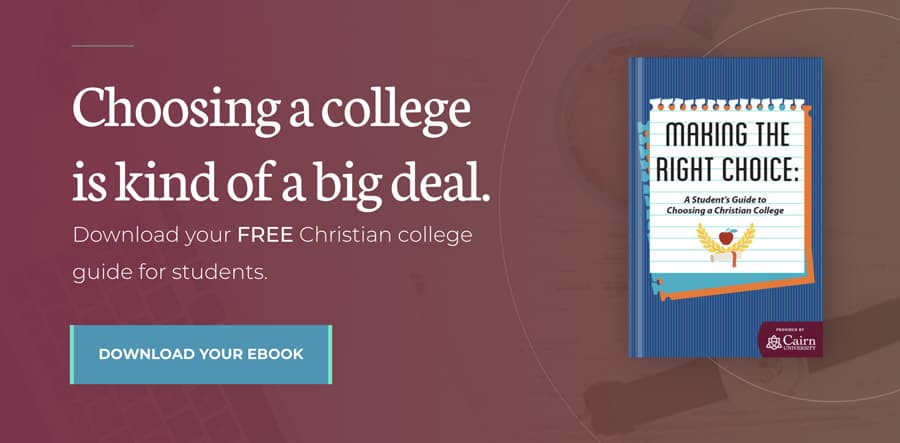With so many options, choosing a college major can be stressful. While knowing what you want to major in is helpful as you will have to officially declare your major during your sophomore or junior year, many high school seniors are unsure of what major to choose. Over 20–50% of college freshmen enter college as “undeclared” — meaning they haven’t chosen a major yet.
Even those who think they know what they want to major in may end up changing their minds. The average college student changes his major two or three times before finally declaring. Although certain programs do require you to declare your major early on, such as pre-med and engineering tracks, it’s okay if you don’t have it all figured out. If you’re not sure where to begin, keep reading to learn all about choosing a major.
 What is a major?
What is a major?
A major is a specific subject area that students specialize in. This means that the majority of the courses you take in college will be related to your major. Students often choose a major that is related to their intended future career.
However, your future job is not always tied to a specific field of study. For example, many students who wish to become lawyers major in English, philosophy, political science, and economics. While most students who want to go to become doctors major in biology or chemistry, some study public health or business administration.
Although your major may not be tied to a specific field, the bottom line is this: Think about how your major will translate into a job.
Is your major important?
Some say yes.Choosing your major early is important as some degree programs are less flexible than others. This means that the program has a specific set of required courses that will allow you to graduate in four years. These programs have less room for electives.For example, it may be easier to switch from being an English major to a history major as there may be overlapping humanities classes. However, if you decide to switch from being an English major to an engineering major, you may “lose” some of your credits and have to stay an extra semester. So in short, it’s important to choose your major early on so that you don’t waste money and time trying to finish your major requirements.
Your major is also important as it will help provide you with the knowledge and skills needed for a specific job or a graduate program. Many companies want to hire students with specific degrees. For example, many accounting firms want students with accounting degrees. After all, you wouldn’t want someone to do your taxes if they don’t have the proper qualifications. The same goes for lawyers and doctors, although these professionals earn their qualifications through graduate education.
And some say no.However, many would argue that your major is not that important. College provides you with the foundational skills you need to succeed, and you may discover that you want to change careers after a couple of years in your industry. If you ask around, you’ll find that many graduates find jobs in a different field from what they studied in college. According to the U.S. Department of Labor, the average person changes career fields two or three times in their lifetime. So while your major may lead you to a specific industry at first, don’t feel that you’re going to be tied down to just one career because of your major.
How do people choose their majors?
 People choose their majors for different reasons. Some choose their majors because they know exactly what they want to do with their lives and how to get there. These people tend to have more of a one-track mind when it comes to their career. For example, a person may major in nursing because she knows she wants to be a full-time nurse after graduation.
People choose their majors for different reasons. Some choose their majors because they know exactly what they want to do with their lives and how to get there. These people tend to have more of a one-track mind when it comes to their career. For example, a person may major in nursing because she knows she wants to be a full-time nurse after graduation.
Others choose their majors because they don’t have a clue what they want to do with their lives and want to explore their passions. These people can see themselves doing different kinds of jobs in the future. For example, a person may major in philosophy because he is interested in the subject but may go to find a job in education, government, or business.
How to choose your major
1. Figure out what you’re interested in.
- What do you like to do?
- What activities were you involved with in high school?
- What would you do if money weren’t a consideration? (dream job)
- What are some things you care deeply about (for example, a cause, political issue, etc.)?
- What are some activities/subjects that you hate? (If you’re having a hard time coming up with interests, start by narrowing down the list of things you don’t like to do.)
2. Figure out what your skills are.
- What are you good at or have you been told you’re good at?
- What are some skills you struggle with? (for example, math problems, getting along with people, time management)?
- Do you like to take on leadership roles or support roles?
- Are you more creative & imaginative or logical & analytical?
- Do you work better alone or in groups?
3. Figure out your values.
- How do you define success
- What makes life meaningful
- What’s important to you (for example, helping others, making money, ability to be creative)?
- Would you rather work at a job you don’t enjoy but pays well or work a job that you’re passionate about but doesn’t pay as well?
- What are some reasons you would not work for a company?
4. Be realistic.
At this stage, be realistic about the overlapping areas of your interests, skills, and values.
For example, maybe you’re interested in medicine, but you failed every science class you ever took. In this case, your interest doesn’t match up with your skill, so you may want to reconsider majoring in something like neuroscience.
Although you don’t necessarily have to be good at something to major in it or to find a job in that field, it does help if your interests, skills, and values overlap. While it’s important to follow your passions, it’s wise to make sure your college degree is an investment in your career.
5. Research possible careers.
After jotting down your interests, skills, and values, research possible careers that match up with what you wrote. Here are some resources to learn more about careers and industries:
- Bureau of Labor Statistics’ Occupational Outlook Handbook
- MyPlan.com
- InsideJobs.com
- Vault.com
- CareerOverview.com
After doing some research, write down a list of five careers that you find interesting and that match up with your interests, skills, and values.
6. Match career to college major.
Narrow down your career choices and look up which degrees would be most advantageous to your career choice. For example, if you want to become a counselor, you may want to major in counseling or psychology. If you’re interested in becoming a physical therapist, consider majoring in a science such as biology, physiology, kinesiology, or exercise science.
While you don’t have to major in a subject related to your future career, most students do so, since many graduate schools require that applicants have taken a number of undergraduate courses (called prerequisites) related to the graduate program before they can be admitted. If you have an idea of what you’d like to do, get ahead of the game by matching your prospective career to a related college major.
If you’re not sure which majors are related to specific careers, you can always talk to your high school guidance counselor, a college admissions counselor or advisor, or someone from a college’s career center.
Can’t choose between your interests?
Minors
If you’re interested in multiple subjects, consider choosing a minor. Similar to majors, minors are areas of concentration but with fewer required credits. Minors usually supplement your major, but they don’t have to relate. Some people chose their major based on their career and choose their minor just because they find the subject interesting.
Double majors
If you’re equally torn between two different careers, you may want to double major. This will require more credits and possibly extend the amount of time you’re in college. There are pros and cons to both sides, so do your research before committing to be a double major.
Looking for a Christian college on the east coast? With the Bible at the core of our curriculum and service at the core of our culture, Cairn offers a university experience truly centered on Christ and His Word. Contact an admissions counselor today to learn more!


 Your major is also important as it will help provide you with the knowledge and skills needed for a specific job or a graduate program. Many companies want to hire students with specific degrees. For example, many accounting firms want students with accounting degrees. After all, you wouldn’t want someone to do your taxes if they don’t have the proper qualifications. The same goes for lawyers and doctors, although these professionals earn their qualifications through graduate education.
Your major is also important as it will help provide you with the knowledge and skills needed for a specific job or a graduate program. Many companies want to hire students with specific degrees. For example, many accounting firms want students with accounting degrees. After all, you wouldn’t want someone to do your taxes if they don’t have the proper qualifications. The same goes for lawyers and doctors, although these professionals earn their qualifications through graduate education.


